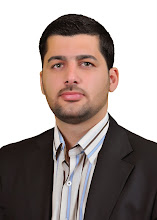The Consultative Center for Studies and
Documentation - Beirut, published a research paper titled “U.S. Smart Strategy
to Confront Hezbollah" (12 pages) written by Hosam Matar (an international
relations researcher).
Matar argues that the end of Israel's aggression in 2006 against Lebanon and its failure to achieve its political objectives against Hezbollah, has led to increase the American involvement in the confrontation against Hezbollah, but on the basis of a new strategy based on soft power. the paper highlights how the American effort was transformed to areas that fall outside the military sphere by trying to target the community which Hezbollah stems from. This was done through the use of media, political and cultural tools in order to form a new image of Hezbollah in the Lebanese and regional conciseness, which make him vulnerable to the possibility of military defeat at the later stage. This U.S. policy aims – according to Matar - to achieve four basic goals: to reduce the legitimacy of the resistance, deepen the national division about its role, isolate it at the external level, and to limit its policy options and flexibility.
The paper aims to explore the change in the U.S. policy towards Hezbollah since the 2006 war, as a fundamental, deep and comprehensive change. The importance of examining this change appears on two levels, first at the theoretical level is allows evaluate the effectiveness of soft power in certain circumstances, a debate which is taking place recently between proponents (Liberals like Joseph Nye, Fareed Zakaria) and opponents (neo-conservatives in particular) of the idea of resorting to soft power. Secondly practical importance in that it allows a better understanding of a series of events and political events, at the Lebanese and regional level, as part of a specific strategy and not the product of improvisation and chance. Then, this in turn allows better ability to predict the shape of confrontation in the foreseeable future at a regional moment characterized by confusion and uncertainty. The paper is based primarily on Joseph Nye concept of soft power that had already developing since the beginning of 1990, in addition to the "the U.S. Government Counter-insurgency Guide” issued by the U.S. State Department in 2009.
The paper is divided into the following sub-headings:
• Soft Power: The magnet instead of the hammer
• Hezbollah: "Hydra" cannot be
killed
• The option of soft power: targeting the
social incubator
• reduce the National influence of Hezbollah
• demonizing Hezbollah: the criminal charge
• marginalizing Hezbollah’s message
In conclusion, instead of "hunting"
Hezbollah, Washington is seeking to pollute the environment that Hezbollah
lives in it, which make it an "alien body" within the national and
regional environment which will then isolate Hezbollah, and only then it becomes
possible to defeat Hezbollah through war. In the initial analysis, it seems that the U.S. policy achieved
many successes, benefiting mainly from the Lebanese social divisions and
regional sectarian tension which was deepened by the Syrian crisis by
portraying it as a sectarian conflict and not a political and strategic one.
Hezbollah seems aware of this situation, but even it will not push him to
change his position in the Syrian crisis, Hezbollah is trying to reduce its
costs by devoting large effort to interpret and explain his position about the
Syrian crisis to the public, particularly through the speeches of its Secretary
General Sayyed Hassan Nasrallah who holds mainly this crucial task.
Matar concludes also that the reality of the Middle East as a region full of weak and failed States accompanied with identity crisis, which means a region falls under the domination of corrupted elites that serves the globalized capitalism, with weak political identities, strength of historical emotions and enmity , and the contradiction between belonging to certain state and a certain cultural group, all that enhances the effectiveness of American soft power in the region against resistance movements as Hezbollah
The final evaluation of this U.S. smart strategy still needs more time because it was originally designed to reshape identities and values, a process that needs many years. Also the region is going through a moment of chaos and therefore we need to observe what will settle after the end of this ugly sectarian tide. In addition, Hezbollah experience and historical achievements against “Israel” are still alive has a place in the hearts and minds of Muslims and Arabs even they were faded recently. More importantly, Hezbollah began recently to realize the goals and tools and the nature of the new U.S. police, and to respond to it through media, political, social and cultural policies and steps. But also evaluating Hezbollah’s response needs more time to be studied and tested in a more detailed way in the foreseeable future.
The full paper can be downloaded from the
following link:


ليست هناك تعليقات:
إرسال تعليق